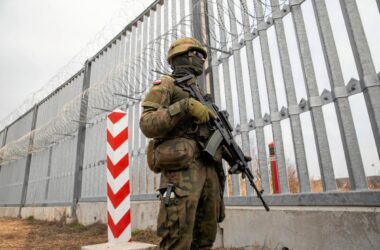Haaretz reports that more than a thousand Israeli soldiers who served in Gaza cannot return to the front due to post‑traumatic stress, recalling vivid images of children’s bodies.
Thousands of soldiers discharged or reassigned
Haaretz interviewed many soldiers who served in the Gaza enclave and are now unable to return to combat because of mental health issues. Personnel‑service officials confirm that thousands have been discharged or moved to support roles.
Haunted by the sight of children’s bodies
Under the pseudonym Yoni, a soldier described his experience in Bajt Lahiji. He heard “terrorists!”, rushed to his machine‑gun, and fired, only to find the bodies of two children, 8‑10 years old, covered in blood. He felt guilt so intense he considered vomiting, and later a commander coldly explained the confrontation as a necessary war action.
Psychiatrists recommend no return to the front
Months later Yoni’s nightmares of dead children persisted. He was advised by a mental‑health specialist that his “moral transgression” created a dissonance between his values and behavior—prompting a recommendation that he should not resume frontline duties. Yoni admits to flashbacks and seeing the faces of the children again.
Surveillance sniper casualties and PTSD
Sniper Benny from Brigade Nahal revealed that on a daily basis he would wait for humanitarian convoys, and when Palestinians loomed too close, he was ordered to shoot. He fired 50‑60 rounds each day and later stopped counting the dead, admitting he had killed many, including children. Benny reports ongoing psychological symptoms—nightmare, smell, intrusive thoughts—and he seeks discharge.
Army’s statistical silence and delayed response
Haaretz notes that since October 2023 the army has diagnosed 1,135 soldiers with PTSD, a figure that excludes those discharged because of other mental‑health problems or who were diagnosed in civilian life. In June, the head of the army’s mental‑health department stated the same number, but the ministry’s response to inquiries about suicide attempts and psychiatric discharges has been slow, leaving the true scale dramatic yet undisclosed.










